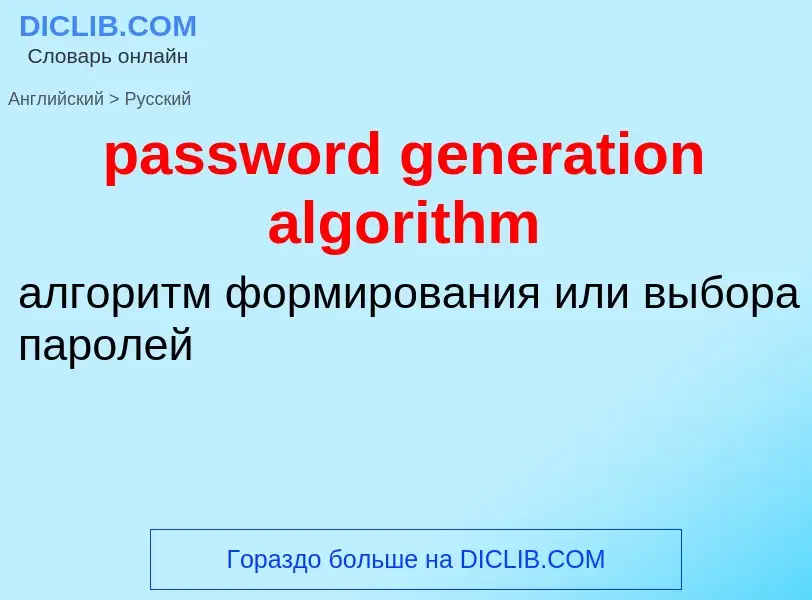Traducción y análisis de palabras por inteligencia artificial ChatGPT
En esta página puede obtener un análisis detallado de una palabra o frase, producido utilizando la mejor tecnología de inteligencia artificial hasta la fecha:
- cómo se usa la palabra
- frecuencia de uso
- se utiliza con más frecuencia en el habla oral o escrita
- opciones de traducción
- ejemplos de uso (varias frases con traducción)
- etimología
password generation algorithm - traducción al ruso
Definición
Wikipedia
A random password generator is software program or hardware device that takes input from a random or pseudo-random number generator and automatically generates a password. Random passwords can be generated manually, using simple sources of randomness such as dice or coins, or they can be generated using a computer.
While there are many examples of "random" password generator programs available on the Internet, generating randomness can be tricky and many programs do not generate random characters in a way that ensures strong security. A common recommendation is to use open source security tools where possible since they allow independent checks on the quality of the methods used. Note that simply generating a password at random does not ensure the password is a strong password, because it is possible, although highly unlikely, to generate an easily guessed or cracked password. In fact, there is no need at all for a password to have been produced by a perfectly random process: it just needs to be sufficiently difficult to guess.
A password generator can be part of a password manager. When a password policy enforces complex rules, it can be easier to use a password generator based on that set of rules than to manually create passwords.
Long strings of random characters are difficult for most people to memorize. Mnemonic hashes, which reversibly convert random strings into more memorable passwords, can substantially improve the ease of memorization. As the hash can be processed by a computer to recover the original 60-bit string, it has at least as much information content as the original string. Similar techniques are used in memory sport.


